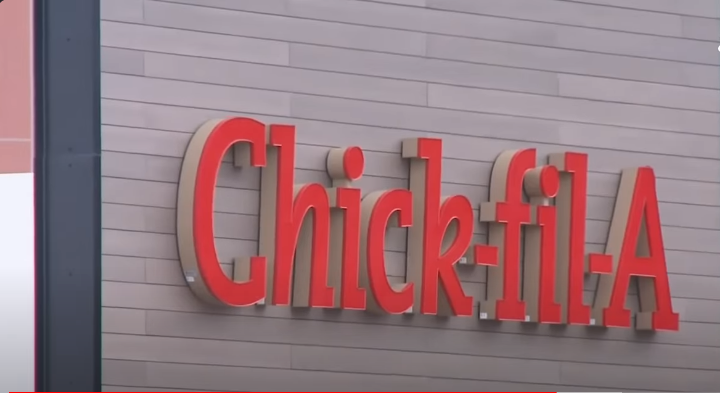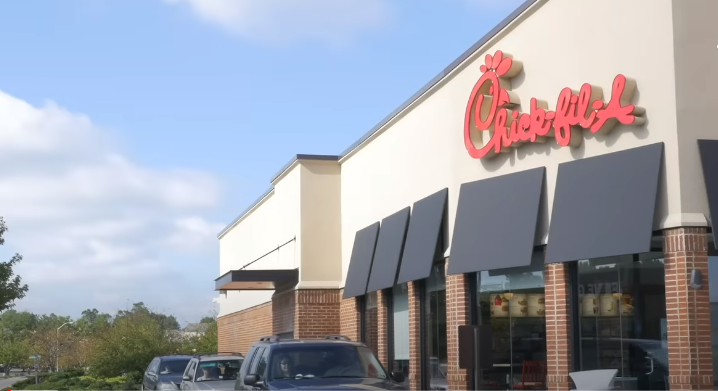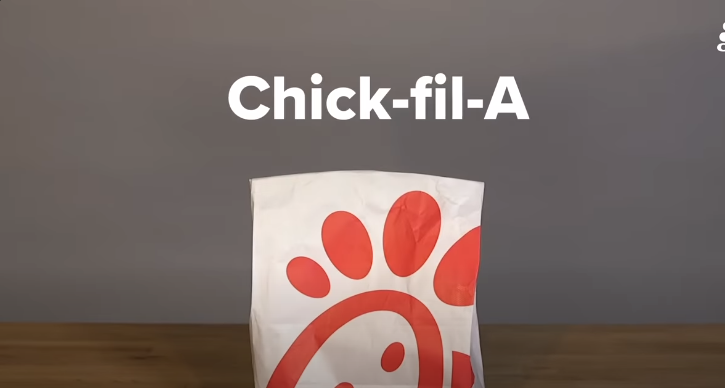A bill could require future rest stop Chick-fil-A’s to stay open on Sundays. The GOP calls that ‘insanity’
A Sunday Change for Chick-fil-A: The Debate Behind Required Rest Stop Routines
Picture the ubiquitous sight of rest stops along a bustling thruway. They serve as oases for long-haul truckers and families bound for vacations, offering stretches of reprieve, fuel, and food. However, legislation potentially requiring every restaurant within these rest stops to operate seven days a week has stirred the pot within legislative chambers and public forums alike. One affected brand: Chick-fil-A, known both for its chicken sandwiches and its policy to remain closed on Sundays, is now at the center of a contentious debate on business rights and consumer needs.
The Catalyst for Legislation
Chick-fil-A's tradition of keeping its doors closed on Sundays originated with its founder, Truett Cathy, for religious reasons. This business practice has become not only a hallmark of the company’s brand identity but also a testimonial of faith. However, some New York State lawmakers argue that the particular context of rest stops differs from that of the regular fast-food locations dotted across urban landscapes. They present a case for amending the landscape of consumer choices at these critical junctures on the highway by introducing a bill to ensure all rest stop restaurants operate every day of the week.
Consumer Needs and Legislative Actions
The proposed legislation reflects a perspective where the principal beneficiaries are travelers and the commercial trucking industry. Lawmakers contend that in places designed to serve those on long journeys, accessibility to food and rest is paramount; the act of one establishment taking a day off weakens this network of respite. When vehicles roll in in expectance of predictability and sustenance, a closed sign may not just disappoint but disrupt the rhythm of travel, leaving consumers hapless and seeking alternative, possibly inconvenient options.
Dissecting the Motive
To dissect this policy proposal is to wade into a debate of prioritization between respecting business autonomy and attending to public convenience. Advocates for the bill see rest stops as critical public utilities; a disruption in service by one entity within this ecosystem affects the collective ability to cater to the mobile population. Amidst other viewpoints that may simply view this as an attack on religious values or business rights, proponents maintain the focus on ensuring hassle-free, continuous services for all travelers.
Connecting to the Broader Picture
This issue taps into overarching themes about the role of the state in regulating business operations, especially those providing essential services in semi-public spaces. When a business's operational decisions intersect with public necessity, the resulting tensions are undeniable. This case extends beyond Chick-fil-A or any single entity—it highlights the struggle in balancing respect for company policies with meeting a universal service expectation.
The Resonance of Rest and Religion
For many, Sundays and rest are inextricably linked, and this is enshrined within numerous traditions and lifestyles. Particularly within the context of Chick-fil-A, Sunday remains a non-negotiable day of rest, a vestige of the founder's Christian beliefs and commitment to affording employees a guaranteed break to regenerate or worship.
Upholding Tradition and Faith
The policy's influence transcends the operational—it gestures towards a corporate ethos interwoven with religious conviction. It is common within shopping complexes to witness the closed shutters of Chick-fil-A outlets amidst their bustling, open neighbors on Sundays, standing as a testament to Cathy's beliefs. For supporters, this practice isn't merely a relic; it's a living, breathing embodiment of maintaining work-life balance and honoring spiritual commitments.
The Inherent Conflict
The core conflict arises from placing businesses with such ingrained closure traditions within the service-demanding environment of rest stops. Proponents of keeping these closures argue for the sanctity of belief and the right of a private business to determine its hours. This position underscores the broader American values around freedom of religion and the market's laissez-faire leanings.
The Repercussions of a Compulsory Change
Implementing a legislative mandate for these establishments to remain open on Sundays could, therefore, be viewed as an encroachment on these values. It not only challenges the company’s religious expressions but may also stir discontent and resistance from those who see it as an unnecessary governmental overreach into the private sector.
The Socio-Political Landscape
The backdrop of this legislative proposition is not devoid of politicization. Chick-fil-A has historically found itself at the heart of cultural battles given its corporate donations and the CEO's outspokenness on issues such as same-sex marriage. Hence, any legislation affecting its operation is bound to ripple through the political arena.
Politicization of a Business Policy
Opponents of the bill, predominantly from the GOP, frame this legislative move as an attack on the values they associate with Chick-fil-A, labeling it as 'insanity'. This characterization seems to be more about symbolic politics than the concerns about daily operations, touching upon broader themes of religious freedom and conservative ideology.
Bridging Business and Beliefs
At its heart, the controversy signals deeper societal divisions, with businesses often caught in the crossfire. The politicized interpretation of commercial decisions and policies poses a significant challenge to governance, blurring the lines between protecting consumer interests and straying into the realm of value-laden governance debates.
The Positioning within the Political Divide
This measure's life will depend greatly on which side of the politico-cultural divide it is viewed from. With parties framing the narrative as either consumer protection or religious infringement, its trajectory might say as much about the current state of political discourse as it does about rest stop dining options.
Conclusion: Weighing the Debate
As lawmakers table the bill requiring these strategic service providers to remain open every day, a consensus hangs in the balance. The juxtaposition of Sunday closures as either quaint reminders of faith-centered entrepreneurship or a hindrance to a seamless travel experience illustrates the complexity of the current social tapestry. As the debate unfolds, all eyes are on New York's legislative halls and Chick-fil-A's counters, waiting to see if the rest stop routine will embrace a sweeping change or hold fast to tradition.
In this intricate dance of commerce, conscience, and consumer need, the decisions that emerge will echo beyond the clatter of cutlery and cash registers—they will reverberate through the annals of socio-political discourse, shaping the way businesses operate within public-serving domains.
For travelers seeking sustenance and solace on the road, this debate isn't merely theoretical; it's about ensuring their journeys, irrespective of day or demand, are uninterrupted by closed doors. As New York goes, so could go the nation, in deciding whether the call for continuous service trumps the conviction of Sunday rest.
F.A.Q.
Question 1.
Q.: What is the new legislative proposal regarding Chick-fil-A's operation at rest stops in New York State?
A.: The proposed bill in New York State would require all restaurants at rest stops, specifically including future Chick-fil-A locations, to stay open seven days a week. This requirement challenges Chick-fil-A’s longstanding tradition of closing on Sundays due to the founder's Christian beliefs, which is an operational standard for all of its locations to date.
Question 2.
Q.: Does this bill target existing Chick-fil-A locations on New York’s Thruway?
A.: No, the bill does not impact the seven existing Chick-fil-A locations currently operating along the New York State Thruway. Instead, it would apply to all future food service contracts at transportation facilities owned by the state and the Port Authority of New York and New Jersey, aiming to ensure that these rest stops provide consistent services every day of the week.
Question 3.
Q.: Why do some lawmakers want to pass a bill focused on rest stop restaurant operations?
A.: The proponents of the bill argue that because the traveling public and commercial trucking industry rely heavily on these service areas for rest, refueling, and nourishment, having a uniform service schedule across all venues, including fast food restaurants, is essential. The bill advocates for consumer protection, ensuring that those traveling via the state's Thruway can consistently access food and beverages every day.
Question 4.
Q.: How has Chick-fil-A responded to the proposed bill?
A.: As of the information available, Chick-fil-A had not formally responded to requests for comments regarding this bill. The company tends to uphold its policy of closing on Sundays as a core part of its business model and philosophy, reflecting the founder's original intent for the practice.
Question 5.
Q.: What is the reasoning behind Chick-fil-A's policy to close on Sundays?
A.: Chick-fil-A's tradition of not operating on Sundays dates back to the company's founder, Truett Cathy, who was a devout Southern Baptist. He instituted the policy to ensure his employees could have a day of rest and worship, aligning with his Christian faith. This practice also serves as a symbol of the company's values, echoing the founder's intention for Chick-fil-A to serve as a "silent witness" to their commitment to faith and family.
Question 6.
Q.: Has the proposed bill generated controversy or opposition?
A.: Yes, the bill has become a cultural flashpoint and has drawn sharp criticism from some members of the GOP, notably South Carolina Republican Lindsey Graham. Opponents frame the bill as an affront to religious liberty and characterize it as an attack on Chick-fil-A's Christian values. They also argue that it represents governmental overreach into private business practices. Lawmakers in favor of the bill insist that the measure is about consumer protection and not about religion.
Question 7.
Q.: What do proponents of the bill say about its relationship to religious matters?
A.: Sponsors of the bill, including New York State Assemblymember Tony Simone, have made it clear that the proposed legislation has no bearing on religious considerations. The bill's introduction focuses on consumer needs rather than previous concerns regarding Chick-fil-A's stance on social issues. Proponents maintain that the thrust of the bill is to ensure the availability of services for people on the move, which they consider fundamental to the state's public service commitments.



Comments
Post a Comment